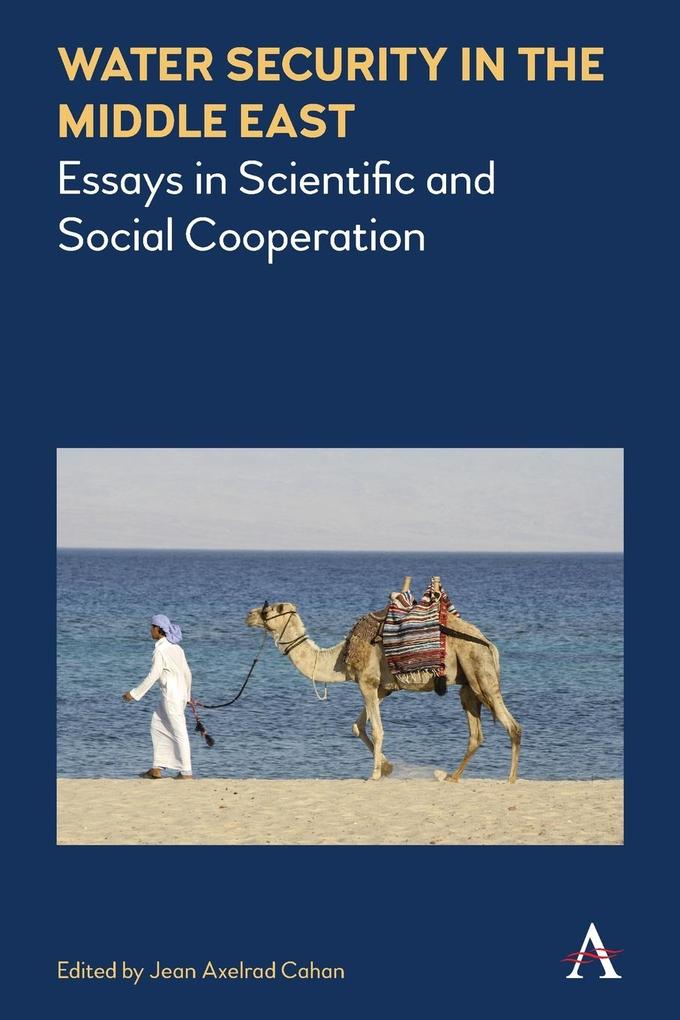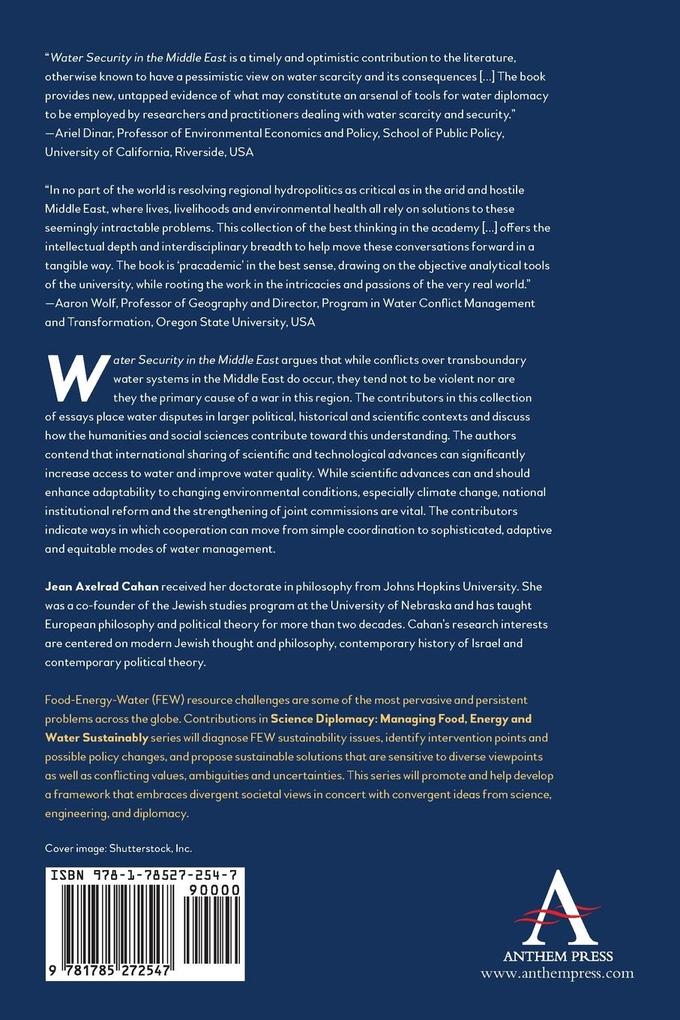
Zustellung: Di, 03.06. - Fr, 06.06.
Versand in 6 Tagen
VersandkostenfreiBestellen & in Filiale abholen:
Water Security in the Middle East explores the extent and nature of water security problems in transboundary water systems in the Middle East. This collection of essays discusses the political and scientific contexts and the limitations of cooperation in water security.
Inhaltsverzeichnis
List of Illustrations; Acknowledgments; Foreword by Roberto L. Lenton; Introduction. Water Security in the Middle East: A Role for the Social Sciences and Humanities - Jean Axelrad Cahan; Chapter 1. Cooperation Rules: Insights on Water and Conflict from International Relations - Patrice C. McMahon; Chapter 2. Water Security in Transboundary Systems: Cooperation in Intractable Conflicts and the Nile System - Jenny R. Kehl; Chapter 3. Water- Demand Management in the Arab Gulf States: Implications for Political Stability - Hussein A. Amery; Chapter 4. A Watershed- Based Approach to Mitigating Transboundary Wastewater Conflicts between Israel and the Palestinian Authority: The Besor- Hebron- Be'er Sheva Watershed - Clive Lipchin and Tamee Albrecht; Chapter 5. The Evolution of Israeli Water Management: The Elusive Search for Environmental Security - Alon Tal. Chapter 6. Adapting to Climatic Variability along International River Basins in the Middle East - Neda A. Zawahri; Chapter 7. Water and Politics in the Tigris- Euphrates Basin: Hope for Negative Learning? - David P. Forsythe; Chapter 8. The Political and Cultural Dimensions of Water Diplomacy in the Middle East - Lawrence E. Susskind; Notes on Contributors; Index.
Produktdetails
Erscheinungsdatum
07. Februar 2020
Sprache
englisch
Seitenanzahl
230
Herausgegeben von
Jean Axelrad Cahan
Verlag/Hersteller
Produktart
kartoniert
Gewicht
380 g
Größe (L/B/H)
229/152/14 mm
ISBN
9781785272547
Entdecken Sie mehr
Bewertungen
0 Bewertungen
Es wurden noch keine Bewertungen abgegeben. Schreiben Sie die erste Bewertung zu "Water Security in the Middle East" und helfen Sie damit anderen bei der Kaufentscheidung.











